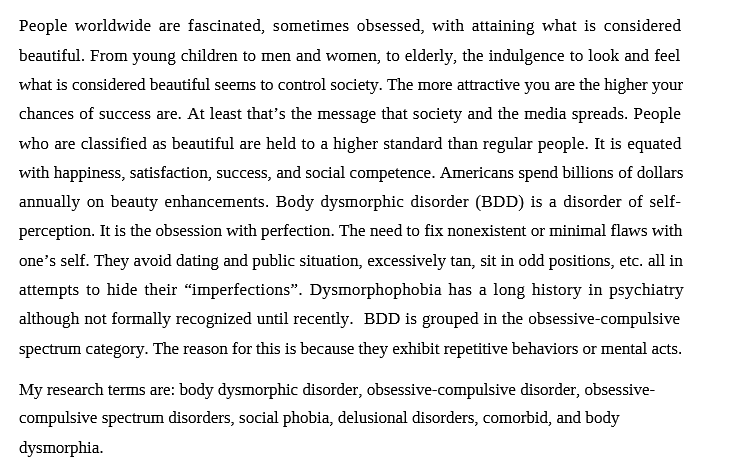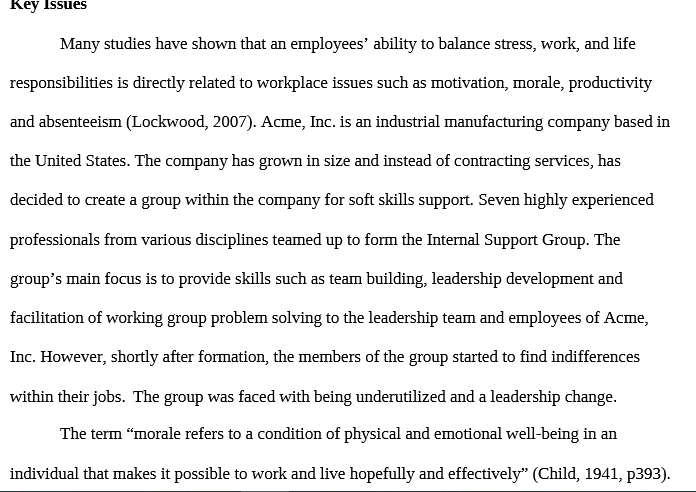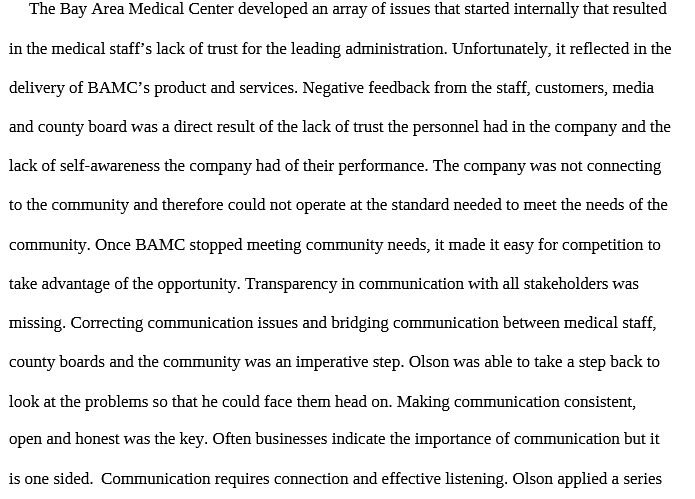PSY 1 body-dysmorphic-disorder.docx- Snhu
$3.99
PSY 1 body-dysmorphic-disorder.docx- Snhu
BODY DYSMORPHIC DISORDER2AbstractPeople worldwide are fascinated, sometimes obsessed, with attaining what is considered beautiful. From young children to men and women, to elderly, the indulgence to look and feelwhat is considered beautiful seems to control society. The more attractive you are the higher yourchances of success are. At least that’s the message that society and the media spreads. Peoplewho are classified as beautiful are held to a higher standard than regular people. It is equatedwith happiness, satisfaction, success, and social competence. Americans spend billions of dollarsannually on beauty enhancements. Body dysmorphic disorder (BDD) is a disorder of self-perception. It is the obsession with perfection. The need to fix nonexistent or minimal flaws withone’s self.
Description
PSY 1 body-dysmorphic-disorder.docx- Snhu
BODY DYSMORPHIC DISORDER2AbstractPeople worldwide are fascinated, sometimes obsessed, with attaining what is considered beautiful. From young children to men and women, to elderly, the indulgence to look and feelwhat is considered beautiful seems to control society. The more attractive you are the higher yourchances of success are. At least that’s the message that society and the media spreads. Peoplewho are classified as beautiful are held to a higher standard than regular people. It is equatedwith happiness, satisfaction, success, and social competence. Americans spend billions of dollarsannually on beauty enhancements. Body dysmorphic disorder (BDD) is a disorder of self-perception. It is the obsession with perfection. The need to fix nonexistent or minimal flaws withone’s self.
PSY 1 body-dysmorphic-disorder.docx- Snhu
They avoid dating and public situation, excessively tan, sit in odd positions, etc. all inattempts to hide their “imperfections”. Dysmorphophobia has a long history in psychiatryalthough not formally recognized until recently.BDD is grouped in the obsessive-compulsivespectrum category. The reason for this is because they exhibit repetitive behaviors or mental acts.My research terms are: body dysmorphic disorder, obsessive-compulsive disorder, obsessive-compulsive spectrum disorders, social phobia, delusional disorders, comorbid, and bodydysmorphia.
PSY 1 body-dysmorphic-disorder.docx- Snhu
Only logged in customers who have purchased this product may leave a review.





Reviews
There are no reviews yet.